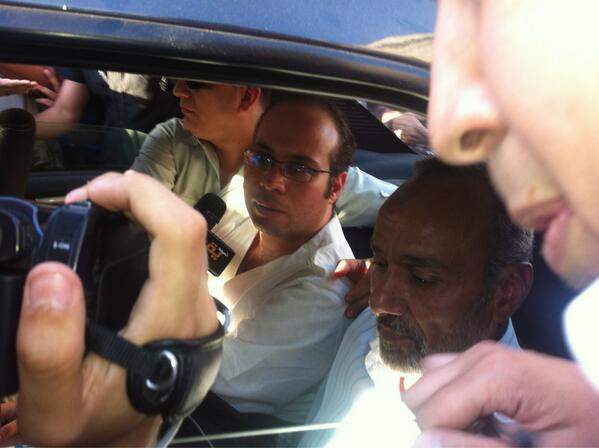By Omnia Al Desoukie
CAIRO: Following its coverage of recent clashes between protesters and armed forces that left 25 people dead, experts hold state media accountable for misinformation, blaming it for many of the society’s ailments including sectarianism.
Last Sunday, when a Maspero march was attacked, state TV called on Egyptians to defend the military from an attack by Coptic protesters, which sparked heavy criticism from politicians, activists and human rights experts alike.
State TV was also quick to announce the death of three military officers during the clashes, while ignoring to mention the number of protesters killed — mainly Egyptian Copts — until later that night. It is still unclear how many, if any, army personnel were killed.
“The Egyptian media has been the reason behind ignorance, racism and discrimination. It helped bring Egyptians to what they are now,” said Hussein Abdel Ghani, former Al Jazeera Cairo bureau chief.
According to experts, autocratic governments manipulate the media to promote their own agendas; unknowingly misleading the public.
“During Mubarak’s tenure, the government had absolute power over the media which was controlled by state security and the disbanded National Democratic Party at that time, therefore it was a media that did not secure the flow of information but rather mislead the public,” Abdel Ghani said.
Abdel Ghani said the media’s role was either to broadcast misleading information by highlighting achievements by the former regime to overshadow all the problems the country is facing.
Follow the leader
“They have learnt to idealize and glorify the ruler, in the past 30 years it was Mubarak but now it’s the ruling military power. When Mubarak stepped down they immediately looked for an alternative to fill in, which is the Supreme Council of the Armed Forces,” said Rasha Abdulla, associate professor of journalism and mass communication at the American University in Cairo.
State media has also come under heavy criticism for its coverage of the January 25 Revolution, when it worked to distort the image of the protesters and propagate the idea of foreign infiltrators.
“They either work according to directives or what will please the ruler, on Oct. 9 [Maspero clashes] they wanted to portray the army as a protecting entity, thus with ‘ignorant’ enthusiasm they were committing a criminal act in the name of media coverage,” said Abdulla.
“A great deal of what state media is doing comes out of lack of professionalism which is a result of an act to please the ruler rather than inform the public. So they don’t try to cater to the public but rather the ruler,” added Abdulla.
Abdel Ghani explained that state media follows a strategy of “draw me a line and I will follow it – which leads it to commit crimes such as fabricating news.”
Faux objectivity
For decades, state media has been operating under the Ministry of Information which prompted calls for canceling the ministry altogether.
Abdel Ghani argues that portraying an objective image was difficult even with private channels.
“The private channels that are owned by businessmen who are all affiliated to the NDP were created as an outlet for relative criticism to make people believe that there is freedom of expression, yet they were all reporting to the NDP and restricted by state security regulations,” said Abdel Ghani.
He added that both private and state media were using the worst type of propaganda controlled by the regime.
Ashraf Allam, a producer on a show broadcast on state TV, explained that the government directly interfered on choosing guests on state TV’s programs before and during the revolution.
“The programs’ guests were always those who have direct contacts with the regime, no one would be allowed on the programs if the information ministry felt they would criticize the regime,” Allam said.
According to Allam, there is an agreement between the state press and television which obliges young journalists praising figureheads of state TV in their articles and in return be invited as guests on various programs.
Many like Abdel Ghani call for cleansing the media, drafting appropriate laws to regulate newspaper publication, establishing independent radio and television stations, competent administration and transparency of funding, and empowered media personnel. However, any steps in that direction are yet to be taken.
“I have always been saying that the revolution train has not reached state media yet,” Abdel Ghani said.
Shouldering the blame
Meanwhile, others argue that the lack of objective and professional reporting cannot solely be attributed to government control, pointing the finger of blame to the journalists themselves.
Allam argued that due to corruption, nepotism is abundant in Maspero.
He explained that hiring journalists does not depend “on their [level of professionalism] but rather on their contacts in the television body.”
With the level of professionalism within state TV, Allam said the ministry sought to hire well-known anchors such as Mahmoud Saad, Khairy Ramadan and Lamice El-Hadidy.
“These journalists used to make more than LE 7 million which affected the body’s budget,” he said, “Instead the ministry should have provided proper training for the available journalists and anchors.”
“We need [independent] television and radio that does not follow the government but works to empower people,” Abdel Ghani said.

